Tony Bennett – The last crooner in town
He outlived Sinatra (who reckoned him the better singer), inspired Lady Gaga and walked beside Martin Luther King in support of civil rights. David Colton pays tribute to the voice, the man and the legacy of the ‘showbusiness dignity’ and keeper of the Great American Songbook
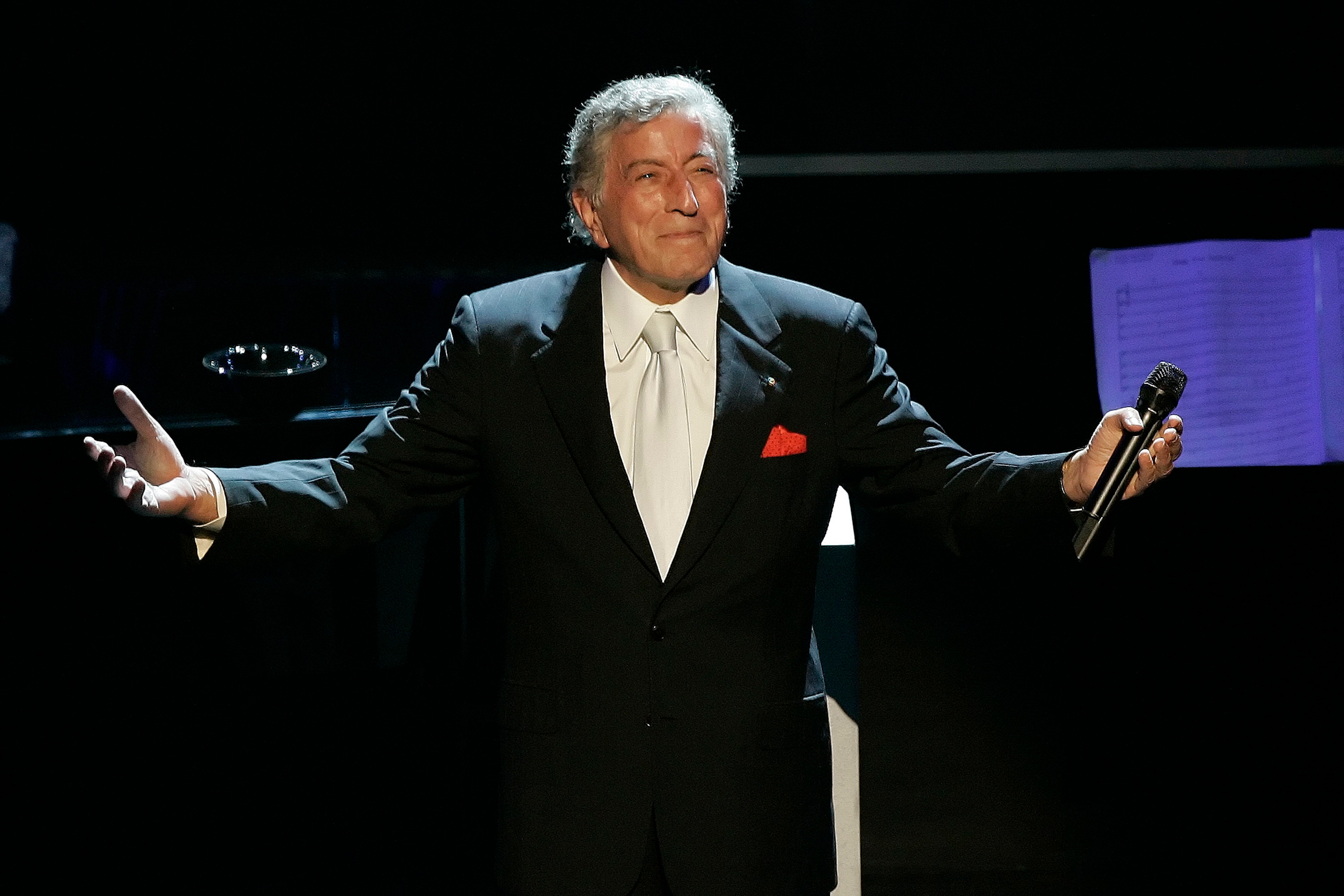
Tony Bennett couldn’t croon as smoothly as Bing Crosby or Mel Torme. He wasn’t an all-around entertainer like Frank Sinatra, Sammy Davis Jr, or Judy Garland. And he refused to change his pitch-perfect nightclub style even when challenged by American rock and roll, the British Invasion, or the dance fevers of disco.
But triumphantly, the singer born Anthony Dominick Benedetto from Astoria, Queens, a few subway stops from the Manhattan supper clubs where comedian Bob Hope discovered him in 1949, outlasted them all. He was the last classic crooner standing.
“He’s irreplaceable,” said Elton John upon hearing of Bennett’s death.
Bennett’s death at 96 leaves a musical portfolio possibly unmatched over seven-plus decades, including numerous hit singles, number one albums and 20 Grammys.
More importantly, he seemed to carry a symbolic calling card – if embossed, it might say “showbusiness dignity” – that ensured the Great American Songbook, the loving nickname for time-honoured standards by Irving Berlin, George Gershwin, Jerome Kern, and so many others, would play well into the 21st century.
“Back in the Sixties, I was told I had to change my music for the kids to accept me,” Bennett wrote in his memoir Life Is a Gift in 2012. “Yet through the years, every age responds to my singing, even though I haven’t changed a thing.”
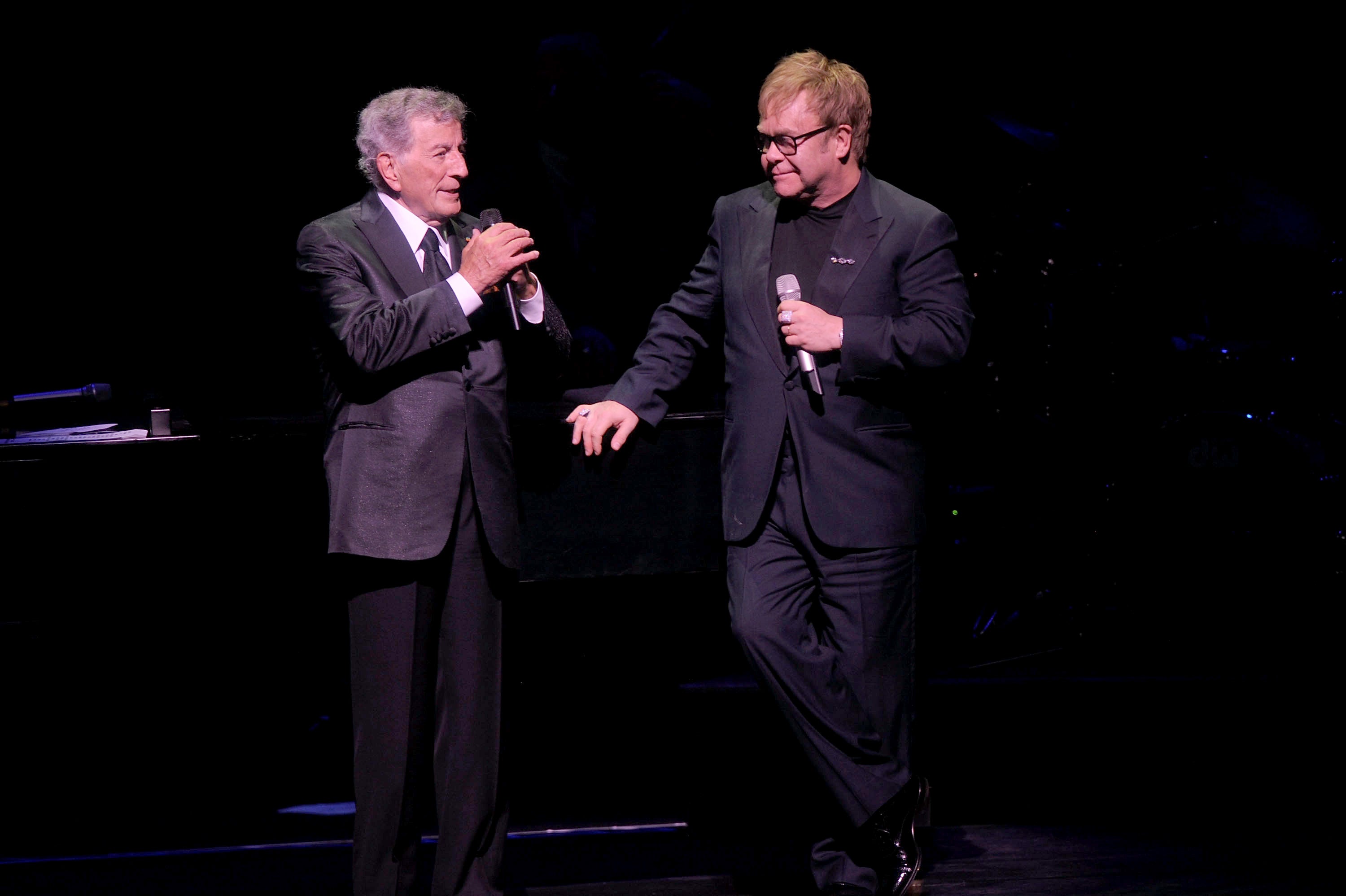
It is no accident that talents as disparate as Harry Connick Jr, Michael Feinstein, Lady Gaga and Rod Stewart still make the hummable standards championed by Bennett part of their touring acts.
“I don’t want to be singing ‘Hot Legs’ when I’m 80,” rocker Stewart, 78, who has released four albums of Bennett-inspired standards, told the BBC recently. “I want to go on tour with a big band and just play this stuff that I love.”
“There’s no better music than the Great American Songbook. There just isn’t,’’ Gaga told the Telegraph before the release of her first duet album with Bennett, Cheek to Cheek, in 2014.
In 2021, Bennett “called me and asked me if I wanted to record another album with him, this time celebrating the songs of Cole Porter,” Gaga posted on Instagram, “I’m always honoured to sing with my friend Tony so, of course, I accepted the invitation.” The result was the Grammy-nominated Bennett-Gaga collaboration and televised concert, Love for Sale.
Musicians always recognised his ability to reveal the truths buried in plain sight within the most familiar of songs.
Billy Joel called Bennett “one of the most important interpreters of American popular song during the mid-to-late 20th century. He championed songwriters who might otherwise have remained unknown to many millions of music fans”.
Well-earned praise, yes, but also the result of an unassuming, affable persona, both non-threatening backstage and welcoming onstage. In concert, it was always about the music, the composers, the arrangements, and riding the vibes within the band. Most impressive to his peers was Bennett’s phrasing, timing and vocal control, a bebop jazz where his voice was just as much an instrument as the horns or percussion.
He could belt out a swinging tune without shouting. And a ballad, he often explained, was like “whispering in someone’s ear.”
Asked what made Bennett special, Lee Musiker, Bennett’s longtime piano accompanist, told AARP Magazine in 2021 that he combined “proper vocal training and a musician’s innate sense, not a singer’s innate sense. Like an instrumentalist, he hears it all. Constantly knocks me out. Then the complete honesty and love”.
Or as musical rival Frank Sinatra told LIFE magazine in 1965, “For my money, Tony Bennett is the best singer in the business. He’s the singer who gets across what the composer has in mind, and probably a little more.”
For all the praise and respect, Bennett’s showbusiness and personal road life was not easy, including serving in the Second World War where he helped liberate the Dachau concentration camp. “A front-row seat in hell,’’ he recalled of his wartime experiences in his 1988 autobiography, The Good Life.
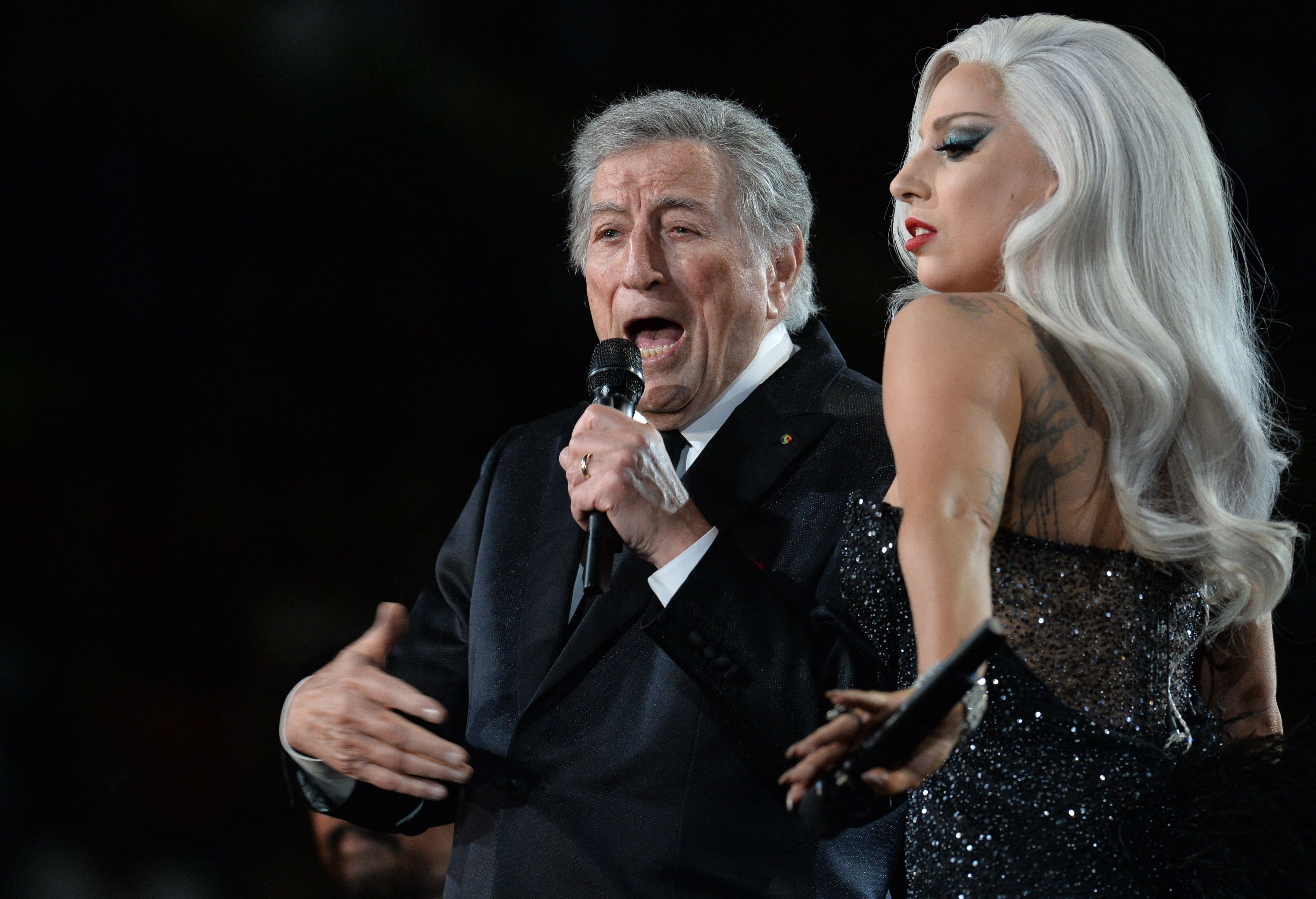
Upon returning, it was Bob Hope who saw the then-Benedetto at a nightclub and suggested he “simplify” his syllable-heavy Italian name to Tony Bennett.
Propelled by hit records in the 1950s and 1960s, songs like “Because of You”, “Rags to Riches”, “Stranger in Paradise” and, in 1962, his signature song “I Left My Heart in San Francisco” made Bennett a constant presence on American radio and television.
YouTube, for example, lists more than 30 clips of Bennett appearing on The Ed Sullivan Show over three decades, then America’s most popular Sunday evening variety programme, often with jazz legends such as Count Basie, Woody Herman, and Duke Ellington.
“I always loved to just sing very intelligent songs,” Bennett said. “Whenever I did get a hit, I would go in and record Cole Porter, Johnny Mercer, the best music I could find."
Bennett also was an early supporter of civil rights, walking alongside the Rev Martin Luther King Jr in Selma, Alabama. “He marched with us in 1964,” said Rev Jesse Jackson. “He was dedicated to civil and human rights and to the arts. He will live as long as we remember him.”
He toured the world as a jazz vocalist, and even moved to England for a brief stay in the 1970s, performing for Queen Elizabeth at her golden jubilee in 2002.
But those years, overshadowed by The Beatles, Stones and pop music, were difficult. Bennett resisted modernising his sound. He was twice divorced and developed a drug habit. Record companies hoped he could do as Sinatra and others had done by covering hits from the pop and rock charts. Bennett reluctantly tried one LP and hated the result.
Instead, he insisted young musicians come to him, so they could hear the roots of what they were singing. Though many of his contemporaries were written off as hopelessly square and corny, Bennett’s defiant approach to his craft was emerging as hip and unexpectedly counterculture.
Finally, in 1994, appearing with cutting-edge musicians such as Elvis Costello and kd lang, Bennett’s MTV Unplugged appearance went platinum as an album and won a Grammy. “Tony Bennett has not just bridged the generation gap, he has demolished it,” enthused The New York Times.
That approach led to a pair of Duets: An American Classic albums in 2006 and 2011 where Bennett paired with far younger talents such as Lady Gaga, Bono, Sting, Queen Latifah, The Chicks, Stevie Wonder, Paul McCartney, Faith Hill and Natalie Cole.
Bennett had become so familiar, Alec Baldwin on Saturday Night Live parodied the singer as a hopelessly optimistic, smiling entertainer. Bennett even appeared in one 2013 sketch. Clint Eastwood advised Bennett that once they make fun of you, you know you’ve made it.
"Fame comes and goes. Longevity is the thing to aim for,” a satisfied Bennett wrote, concentrating as much on his oil painting and his walks on Manhattan’s West Side as his singing career.
A diagnosis of Alzheimer’s in 2016 clouded his final years, yet even then Bennett’s public battle with the disease helped inspire millions. His third wife, Susan, was by his side as he went public with the affliction in 2021.
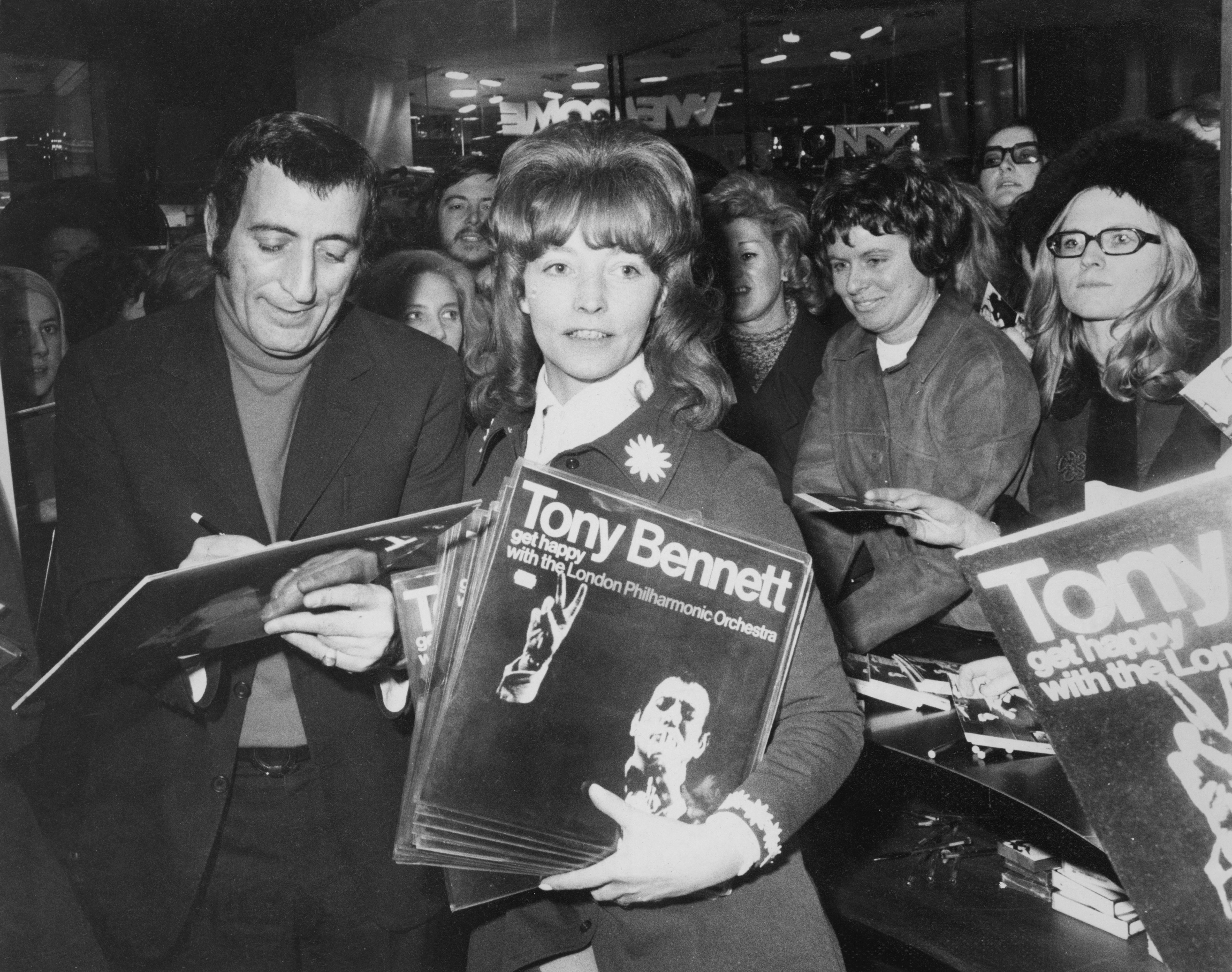
“Life is a gift, even with Alzheimer’s,” Bennett tweeted at the time.
“He is doing so many things, at 94, that many people without dementia cannot do. He really is the symbol of hope for someone with a cognitive disorder," Dr Gayatri Devi, the neurologist who diagnosed Bennett, said at the time.
Bennett retired from touring, but reunited with Lady Gaga for one last show at Radio City Music Hall in New York. The collection of 11 songs were indeed chapters from the Great American Songbook – “Luck Be a Lady”, “Anything Goes”, “Fly Me to the Moon”, “The Lady Is a Tramp” and the emotional closer, “I Left My Heart In San Francisco.”
“Just simply being the woman that got to walk him offstage, that’s enough for me,” recalled Lady Gaga.
Few of his true contemporaries are left to eulogise him. Nancy Sinatra, Frank’s daughter, said “Tony was one of the most splendid people who ever lived. Kind, loving, talented and generous, he never let us down.”
Dean Martin’s daughter, Deana Martin said: “He will be forever remembered as a master of the Great American Songbook, an incredible painter and a lifelong friend…”
“Luckily, we have his voice on record so we can preserve his legacy forever,” said Smokey Robinson.
Looking back, Bennett had few regrets: “Ninety-nine percent of the time, I’ve been sold out all over the world,” he said once. Also, “I want to try to prove that at 100, I could sing as well as I was singing when I was 45 or 43.”
Less than two weeks short of 97, Tony Bennett came close enough. Because his musical children and their children will be singing from the Tony Bennett Songbook for as long as there are those who can truly feel lyrics like, “When I come home to you, San Francisco, Your golden sun will shine for me.”
David Colton is a former executive editor at USA Today
Join our commenting forum
Join thought-provoking conversations, follow other Independent readers and see their replies
Comments
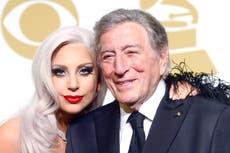
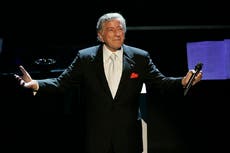
Bookmark popover
Removed from bookmarks